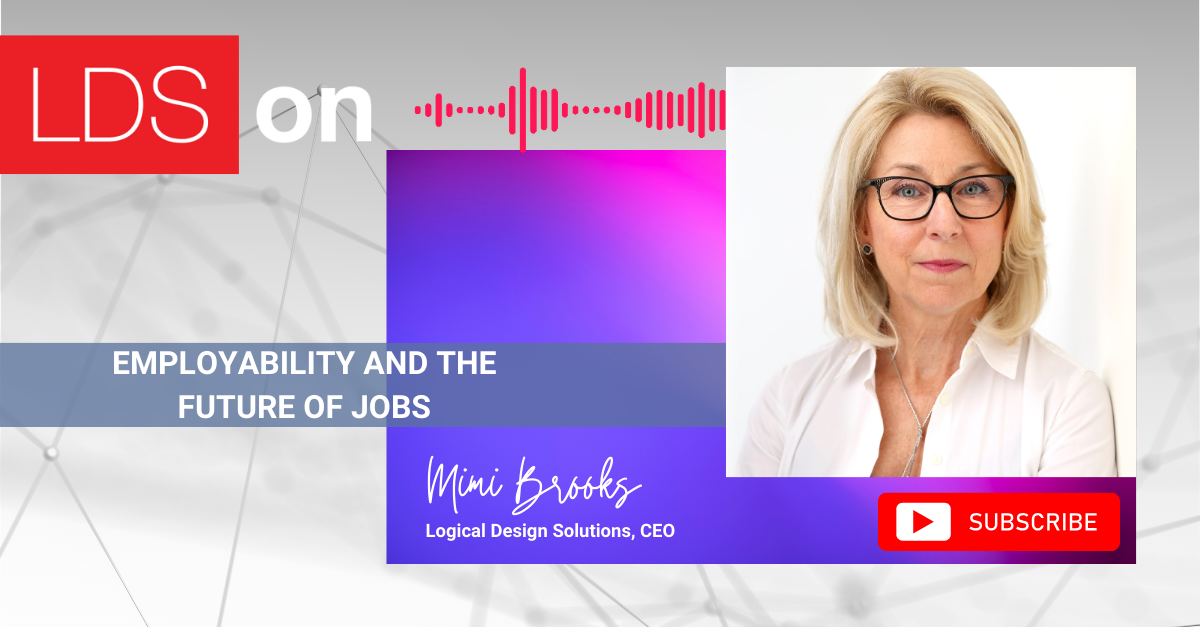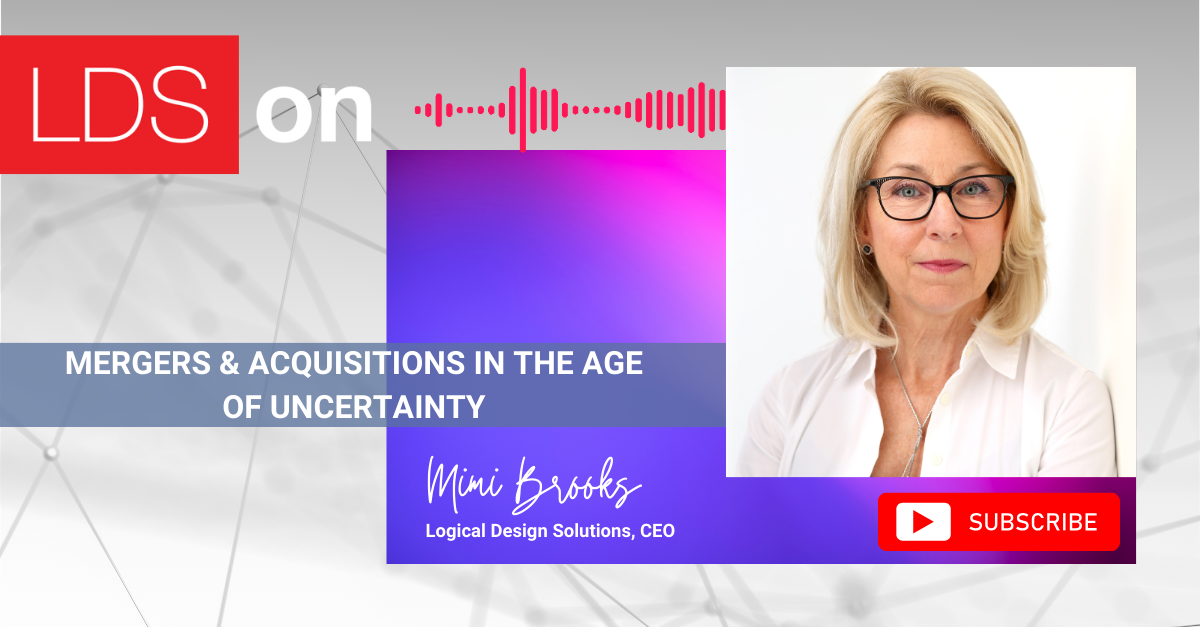3 min read
LDS On: Employability and the Future of Jobs
In this episode, LDS CEO Mimi Brooks leads a conversation on the future of jobs as organizations accelerate action on reskilling, upskilling and...
In this episode of “LDS On,” CEO Mimi Brooks discusses Environmental, Social, and Governance (ESG) Essentials. During this time of extraordinary global change, these are the three areas that socially conscious investors will examine before making a financial commitment to an organization. As the Fourth Industrial Revolution (4IR) unfolds and traditional companies transition from outdated business practices into the digital age, the companies that focus on ESG principles and measures are earning the trust and loyalty of all stakeholders, and are proving to be sustainable while driving long-term, profitable growth.
Welcome to the third video in a series of LDS thought-leadership dedicated to the discussion of transformation management.
In each bi-weekly video, we’ll address a topic of strategic interest to business leaders who are guiding their organizations through transformative change. In this video, I’ll focus on Environmental, Social, and Governance, or ESG Essentials. Increasingly, these are the three areas that socially conscious investors will examine before making a financial commitment to a company.
Environmental criteria, for example, consider how a company performs as a steward of nature; Social criteria examine how the organization manages relationships with employees, suppliers, customers, and the communities where it operates; while Governance deals with a company’s leadership, executive pay, internal controls, and other stakeholder rights.
So, this is LDS On: Making the business case for ESG. Let’s get started.
In 2020, Klaus Schwab, the founder of the World Economic Forum, issued a manifesto that emphasized the importance of ESG in this time of extraordinary global change. Similarly, other thought leaders leave us no doubt that ESG has become strategically relevant in both a business transformation and investment context. While a company’s environmental practices are now an important part of risk assessment, stakeholders are also looking carefully at social criteria in order to assess a firm’s business relationships.
For instance, do the company’s working conditions show high regard for its employees’ health and safety? Are other stakeholders’ interests taken into account? So when we talk about business transformation, how does an organization take all of these criteria into account? As the Fourth Industrial Revolution unfolds and traditional companies move to transition from outdated business practices into the digital age, every company affects and is affected by, the environment. Every company now operates within an increasingly broad social spectrum. And of course, every company requires governance.
When we transition these three realities to a purposeful strategy and engage stakeholders who are committed to doing business with a company that is publicly perceived as working for the common good, then these endeavors naturally become an integral part of the transformation process.
In fact, a recent McKinsey study of over 2,000 companies found that a company-wide focus on ESG correlated with higher equity returns. Along the same lines, an E&Y survey of major institutional investors revealed strong support for greater CEO and board accountability.
92% of those respondents agreed that ESG issues – from climate change to board effectiveness – have real and quantifiable effects. And a similar percentage of these investors indicated that generating sustainable returns over time requires a sharper focus, not only on governance but also on environmental and social factors.
So how exactly does a robust ESG proposition make financial sense? Findings from these studies suggest that ESG links to cash flow in five important ways:
In summary, it’s apparent that all stakeholders, including investors, clients, customers, employees, and communities increasingly want businesses to make the environment, their social impact, and good governance an integral part of their business strategy in the digital age.
The organizations that focus on ESG principles and measures are earning the trust and loyalty of these stakeholders, and are proving to be sustainable while driving long-term, profitable growth.
ESG commitments remind us that Fourth Industrial Revolution organizations serve a broader role than just creating profits and driving stock price. Today’s workers are more prone to think about what kind of company they want to work for, customers are thinking more about who they want to buy things from, and investors want companies that take a long-term approach and, in doing so, behave as responsible members in their local and our global communities.
Thanks for watching. You can feel free to interact with us on any of the LDS channels shown below. We hope to see you at another LDS On discussion in the future. Until then, stay safe.

3 min read
In this episode, LDS CEO Mimi Brooks leads a conversation on the future of jobs as organizations accelerate action on reskilling, upskilling and...

3 min read
In this episode of “LDS On,” CEO Mimi Brooks examines how the booming 2021 M&A marketplace offers companies a unique opportunity to create...

4 min read
Companies that successfully redesign for the future consistently manifest nine key characteristics. Steve Jobs was once quoted as saying "If you look...